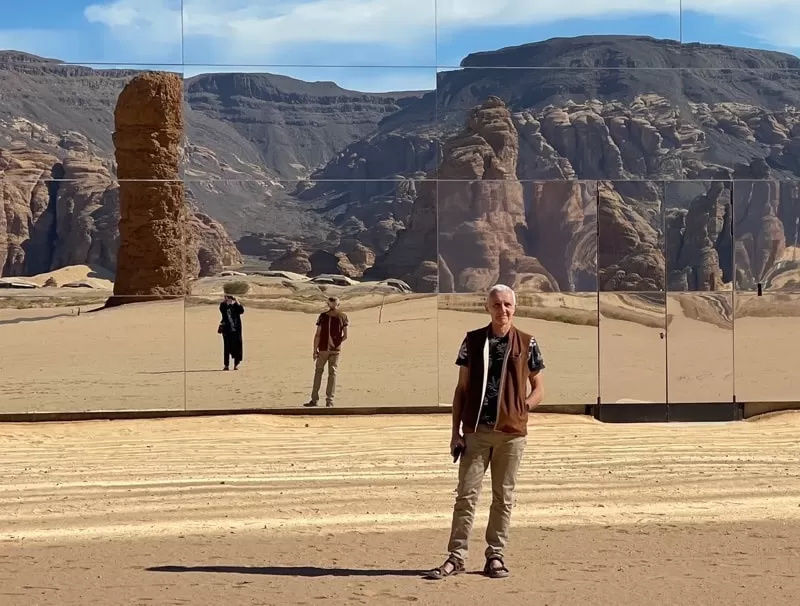This updated post encourages engagement with innovative theological education and missional practice during a time of cultural and ecclesial transition. The author highlights the need for imaginative, community-based re-formation of the church, especially through thoughtful theological engagement. He teaches Romans and hermeneutics at London School of Theology and King’s School of Theology, advocating a fresh approach to scripture relevant for today. Involved in Westbourne Grove Church and Communitas International, he supports non-heroic, creative leadership and locally rooted mission. The post subtly promotes upcoming programmes and events, inviting those interested to explore or participate in this forward-thinking ecclesial movement.

This is rewrite of a post from last year just to update the details, with some changes of perspective and emphasis. I’ll be honest. It’s in part a sneaky—but not unprincipled—way to get people to consider signing up for one or other of the programmes and projects that I’m involved in. Other excellent programmes are available.
There are mainstream ways of being church—across the ecclesiological spectrum—that remain important and may even flourish in the coming years, but I think that there also needs to be a significant imaginative and exploratory dimension to the thought, life, and mission of the church in a period of epochal change. That’s where I’m coming from.
Communities of learning
Probably key to the success of such an approach is the engagement of the larger part of the local community in the work of re-formation, and that includes the thinking bit. Too much church-based theologising, not least amongst evangelicals, has been a dumbing down—reductionist, solipsistic, consumer-driven, Christ-mongering (thank you for that, Michael Bird). Perhaps that’s unavoidable, perhaps in some respects it’s even a good thing in survivalist terms. But if the church in the West is to have a meaningful future, there needs to be a disruptive prophetic vision, and that vision needs to be embraced by and embodied in disruptive communities.
I have tried to get that across in my writing here and in my books. But there are other, less reclusive, things that I do, keeping firmly in mind the question of the relevance of scripture for the future of the church at the end of western Christendom, at the dawn of the Anthropocene.
As far as circumstances allow.
There has to be some give and take, of course. I appreciate the latitude that has been given to me, but not everyone will agree with my view of what it means to be “evangelical”—a term that I think is just about still usable in this country; not everyone will approve of my narrative statement of missional faith, which needs updating anyway.
Let’s start with the thinking, then.
Schools of theology
I have had a long and valuable relationship with London School of Theology. I occasionally teach an undergraduate class on Romans, but my main involvement has been with their online MA in Biblical Studies. I rewrote the substantial hermeneutics component and teach a module on Romans. There’s an online undergraduate open evening coming up soon.
I also teach on Romans and on Jesus and the Story of Israel for King’s School of Theology (not to be confused with King’s College London), which runs a passionate, flexible, and affordable programme aimed at broadening the engagement of ordinary church folk in the thought and practice of church. Online introductory sessions are coming up in July.
That’s a lot of Romans at the moment, but I would argue that it is a pivotal text for resetting the fundamental hermeneutic of the forward-looking church—away from a narrow, static, classical Reformed-evangelical framing of things towards a mindset that wrestles with history and with the implications of historical change. You might want to have a look at my quite detailed overview of the letter on this site, and there’s my book The Future of the People of God: Reading Romans Before and After Western Christendom.
So much for the Bible. Now for church and mission. All part of the same story, of course.
Church and mission
I’m on the leadership team at Westbourne Grove Church in West London. Over the last twenty years, the church has modelled innovative and sustainable ways of engaging with our very diverse social context. We are going through a major transition at the moment, and the plan is to help develop and support new leadership groupings as they pursue the idea of church as creative, broad-based, thoughtful, spiritually rich, locally present “missional” community.
We have some way to go, but we are finding ourselves part of a growing network of organisations with the same values and objectives. This includes the Forge family of churches in the south of England and King’s School of Theology, but we are also beginning to connect with a training programme for “non-heroic” leadership newly developed by the Scottish Network Churches and Communitas called Launch.
Anyway, if you’re in the neighbourhood and curious, come and check us out.
Also, we are currently looking for an Operations Manager. More information and contact details here.
Finally, I mentioned Communitas International. I have been part of this “church-planting” (for want of a better term) organisation for some years. In the western Europe context, over the last twenty years, we have been a pioneering mission to a fault—more creative, experimental, adventurous, and risk-taking than is always good for us. But from my point of view at least, Communitas has provided a wonderful environment in which to explore—theoretically and practically—the paths that connect scripture and mission.
Recent comments